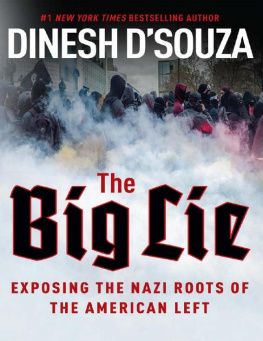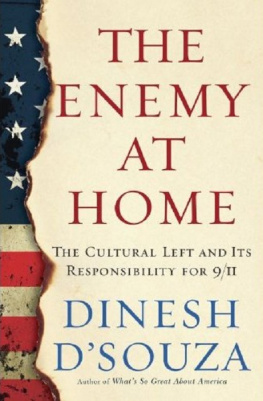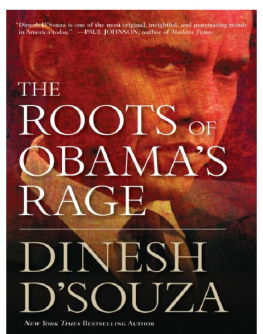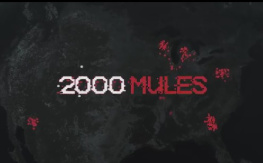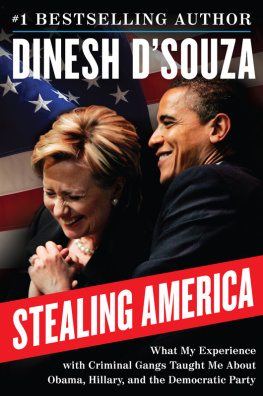Dinesh DSouza - The Big Lie
Here you can read online Dinesh DSouza - The Big Lie full text of the book (entire story) in english for free. Download pdf and epub, get meaning, cover and reviews about this ebook. year: 2017, publisher: Regnery Publishing, genre: Politics. Description of the work, (preface) as well as reviews are available. Best literature library LitArk.com created for fans of good reading and offers a wide selection of genres:
Romance novel
Science fiction
Adventure
Detective
Science
History
Home and family
Prose
Art
Politics
Computer
Non-fiction
Religion
Business
Children
Humor
Choose a favorite category and find really read worthwhile books. Enjoy immersion in the world of imagination, feel the emotions of the characters or learn something new for yourself, make an fascinating discovery.

- Book:The Big Lie
- Author:
- Publisher:Regnery Publishing
- Genre:
- Year:2017
- Rating:4 / 5
- Favourites:Add to favourites
- Your mark:
- 80
- 1
- 2
- 3
- 4
- 5
The Big Lie: summary, description and annotation
We offer to read an annotation, description, summary or preface (depends on what the author of the book "The Big Lie" wrote himself). If you haven't found the necessary information about the book — write in the comments, we will try to find it.
The Big Lie — read online for free the complete book (whole text) full work
Below is the text of the book, divided by pages. System saving the place of the last page read, allows you to conveniently read the book "The Big Lie" online for free, without having to search again every time where you left off. Put a bookmark, and you can go to the page where you finished reading at any time.
Font size:
Interval:
Bookmark:



Copyright 2017 by Dinesh DSouza
All rights reserved. No part of this publication may be reproduced or transmitted in any form or by any means electronic or mechanical, including photocopy, recording, or any information storage and retrieval system now known or to be invented, without permission in writing from the publisher, except by a reviewer who wishes to quote brief passages in connection with a review written for inclusion in a magazine, newspaper, website, or broadcast.
Regnery is a registered trademark of Salem Communications Holding Corporation
Cataloging-in-Publication data on file with the Library of Congress
e-book ISBN 978-1-62157-536-8
Published in the United States by
Regnery Publishing
A Division of Salem Media Group
300 New Jersey Ave NW
Washington, DC 20001
www.Regnery.com
Manufactured in the United States of America
10 9 8 7 6 5 4 3 2 1
Books are available in quantity for promotional or premium use.
For information on discounts and terms, please visit our website: www.Regnery.com.
Distributed to the trade by
Perseus Distribution
www.perseusdistribution.com
To my wife Debbie
One lifetime is too short
Contents
Table of Contents
Although fascism seems to be dead, it could have a second coming in different forms.
Walter Laqueur, Fascism: Past, Present, Future
S ome of Sigmund Freuds most interesting cases involved people who did bad or destructive things and then shifted the blame onto others. Such cases are now standard in psychological literature. Psychologists today are quite familiar with patients who display selfish or vicious behavior and then attribute those qualities to their psychologist. It is also quite common in the course of therapy for patients with a morbid hostility toward a parent or sibling to become morbidly hostile toward the therapist. Following a term coined by Freud, psychologists call this phenomenon transference.
Transference, in its wrongful assignment of blame and responsibility, is obviously a form of lying. A special case of transference involves blaming the victim. In the relevant psychological literature, the perpetrator of some terrible action blames it not on himself but, incredibly, on the victim of the offense. Serial killers who target prostitutes, for example, might come to believe that the prostitutes deserve to be raped and murdered. That woman was a whore. She had it coming. This enables the killer to consider himself a vengeful angel, an instrument of justice.
A good example of blaming the victim was the serial killer Ted Bundy. Earlier in life Bundy had been rejected by a woman who was a brunette. He developed an intense hatred toward her because she made him feel inferior and worthless. So he targeted young brunettes on college campuses to abduct and murder, in effect displacing his hate onto them and holding them responsible for what the other woman once did to him. In Bundys mind, he had been unjustly rejected and victimized, and by a perverted process of displacement he held the women he killed responsible for this.
Blaming the victim is a lie, but a lie of a special type. Normally lying is a distortion of the truth. This applies to transference in the general sense of the term: the qualities of the patient are shifted to the therapist. But when a perpetrator blames the victim, he does more than blame an innocent party. He blames the very party that is being directly harmed by his actions. Blaming the victim involves the perpetrator and victim exchanging places: the bad guy becomes a good guy and the good guy becomes a bad guy. This is more than a distortion of the truth; it is an inversion of it. Its a big, big lie.
The big lie is a term routinely attributed to Adolf Hitler. Supposedly Hitler used the term to describe Nazi propaganda. In his autobiography, Mein Kampf, Hitler contrasts the big lie with little or ordinary lies. The great masses of the people, he writes, more easily fall victim to the big lie than to a little one, since they themselves lie in little things, but would be ashamed of lies that were too big. Such a falsehood will never enter their heads, and they will not be able to believe in the possibility of such monstrous effrontery and infamous misrepresentation in others.
Hitler, however, is not referring to his own big lies. Rather, he is referring to the lies allegedly promulgated by the Jews. The Jews, Hitler says, are masters of the big lie. Now recognize that Mein Kampf is a tireless recitation of libels and calumnies against the Jews. The Jews are accused of everything from being capitalists to being Bolsheviks, from being impotent to lusting after Nordic women, from being culturally insignificant to being seekers of world domination. The charges are contradictory; they cannot simultaneously be true.
Yet while lying about the Jews and plotting their destruction, Hitler accuses the Jews of lying and of plotting the destruction of Germany. Hitler employs the big lie even as he disavows its use. He portrays himself as a truth-teller and attributes lying to those he is lying aboutthe Jews. Could there be a more pathological case of transference, and specifically, of blaming the victim?
The big lie is now back, and this time it is about the role of fascism and Nazism in American politics. The political Leftbacked by the mainstream of the Democratic Partyinsists that Donald Trump is an American version of Hitler or Mussolini. The GOP, they say, is the new incarnation of the Nazi Party. These charges become the basis and rationalization for seeking to destroy Trump and his allies by any means necessary. The fascism card is also used to intimidate conservatives and Republicans into renouncing Trump for fear themselves of being branded and smeared. Nazism, after all, is the ultimate form of hate, and association with it, the ultimate hate crime.
In this book, I turn the tables on the Democratic Left and show that theynot Trumpare the real fascists. They are the ones who use Nazi bullying and intimidation tactics and subscribe to a full-blown fascist ideology. The charges that they make against Trump and the GOP are actually applicable to them. The self-styled opponents of hate are the actual practitioners of the politics of hate. Through a process of transference, leftists blame their victims for being and doing what they themselves are and do. In a sick inversion, the real fascists in American politics masquerade as anti-fascists and accuse the real anti-fascists of being fascists.
The Race Card
This is a topic I have not written about before. On two occasions, once in 1976 and again in 1980, Reagan offhandedly linked the Democratic Party with fascism. The media went into a predictable uproar, implying that once again the old cowboy was spouting gibberish. Reagan Still Sure Some in New Deal Espoused Fascism read the headline in the Washington Post. When he said that, I had no idea what Reagan was talking about. But he knew; he came of age in the 1930s. He was there. He saw the affinities between fascism and the New Deal, affinities that I will elaborate in a subsequent chapter.
Only now, decades later, do I understand what Reagan was getting at. I wish he could have read this book; he would see that, far from being guilty of falsehood or exaggeration, he was guilty of massive understatement. But at the time, I like most of my fellow Republicans and conservatives was a victim of the progressive paradigm, embedded in all our institutions of culture, from academia to Hollywood to the media. In this case, the story that we had accepted, like suckers, was the idea that fascism and Nazism are inherently right wing.
Font size:
Interval:
Bookmark:
Similar books «The Big Lie»
Look at similar books to The Big Lie. We have selected literature similar in name and meaning in the hope of providing readers with more options to find new, interesting, not yet read works.
Discussion, reviews of the book The Big Lie and just readers' own opinions. Leave your comments, write what you think about the work, its meaning or the main characters. Specify what exactly you liked and what you didn't like, and why you think so.

